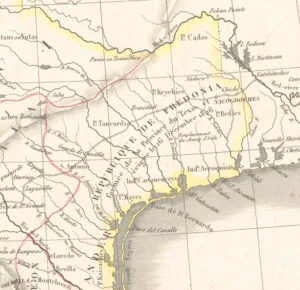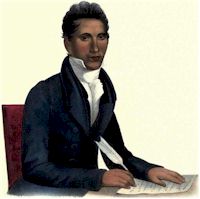Trouble with the Chicamaugas
Trouble with the Chicamaugas, Attack at Knoxville. Mussel Shoals Massacre, Removal to Arkansas, First Printed Laws. The first treaty between the United States and the Cherokees was made at Hopewell on the Keowee River on November 28, 1875, between “Benjamin Hawkins, Andrew Pickens, Joseph Martin and Lachlan McIntosh, Commissioners Plenipotentiary of the United States and the Headmen and Warriors of all the Cherokees.” The Commissioners were among the most distinguished men of the southern part of the republic. Pickens and McIntosh had been brigadier generals of militia in the revolution; Martin and Hawkins had held honorable positions both in military … Read more


